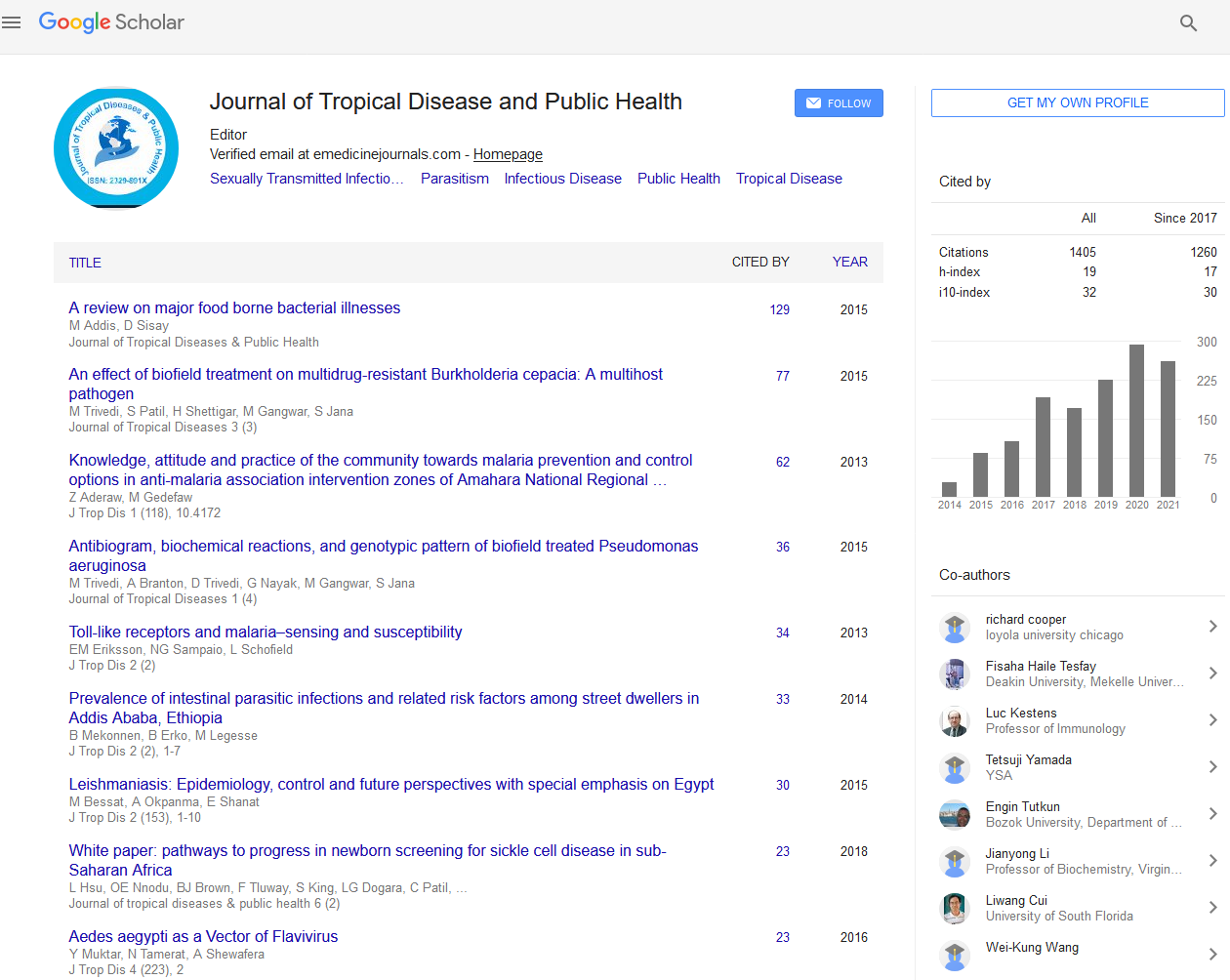Indexed In
- Open J Gate
- Academic Keys
- ResearchBible
- China National Knowledge Infrastructure (CNKI)
- Centre for Agriculture and Biosciences International (CABI)
- RefSeek
- Hamdard University
- EBSCO A-Z
- OCLC- WorldCat
- CABI full text
- Publons
- Geneva Foundation for Medical Education and Research
- Google Scholar
Useful Links
Share This Page
Journal Flyer

Open Access Journals
- Agri and Aquaculture
- Biochemistry
- Bioinformatics & Systems Biology
- Business & Management
- Chemistry
- Clinical Sciences
- Engineering
- Food & Nutrition
- General Science
- Genetics & Molecular Biology
- Immunology & Microbiology
- Medical Sciences
- Neuroscience & Psychology
- Nursing & Health Care
- Pharmaceutical Sciences
Abstract
Analysis on the Awareness of Non-Communicable Disorders and its Prevention through Sports and Fitness Program among High School Students of Mekelle
Somsankar Mukherjee, Hasrani SS and Saini RC
Fitness is the only key to lead a fabulous healthy life-style. With healthy and dynamic life one can not only enjoy the life time but be useful for one’s society. It is known that unhealthy person is considered as burden on the family as well as on the society. It has been noted that NCD is responsible for 30% of deaths in Ethiopia in 2014. It is also estimated by WHO-Ethiopia that 9% of males and 25% of females, whereas 11% of rural and 20% of urban population have insufficient levels of physical activity. Based on above statistics, researchers tried to find out the problems about the awareness of NCD and its preventive measures by physical activities. The researchers targeted randomly five schools from different parts of Mekelle city to find out the level of awareness about NCD and effectiveness of sports to escalate this awareness. The data we received from 356 high school students (209 boys and 147 girls) is very much surprising. As per the their view sports is considered as recreation only, but have very less idea about its benefits, where as they are not aware of causes and consequences of NCD. Moreover, we found that 47% of students (32% of girls and 51% of boys) are willing to play out door games, which represents laziness among the young generation and a warning sign for progression of NCD among upcoming generation of Mekelle, may be true for the whole of Ethiopia. Similarly, we found several such factors on related issues and have been discussed further. We have used non-parametric – chi square statics to find the chance of error. To stop or prevent such problems we suggest that awareness on Non Communicable Disease, its problem and its prevention is best through sharing of knowledge. Even we like to suggest that every education sectors should consider seriously introducing about sports and physical fitness curriculum just like other professional subjects. We believe that if the residents are not physically fit enough, we cannot expect their full contribution to society, though they may highly be regarded with knowledge and technology.


